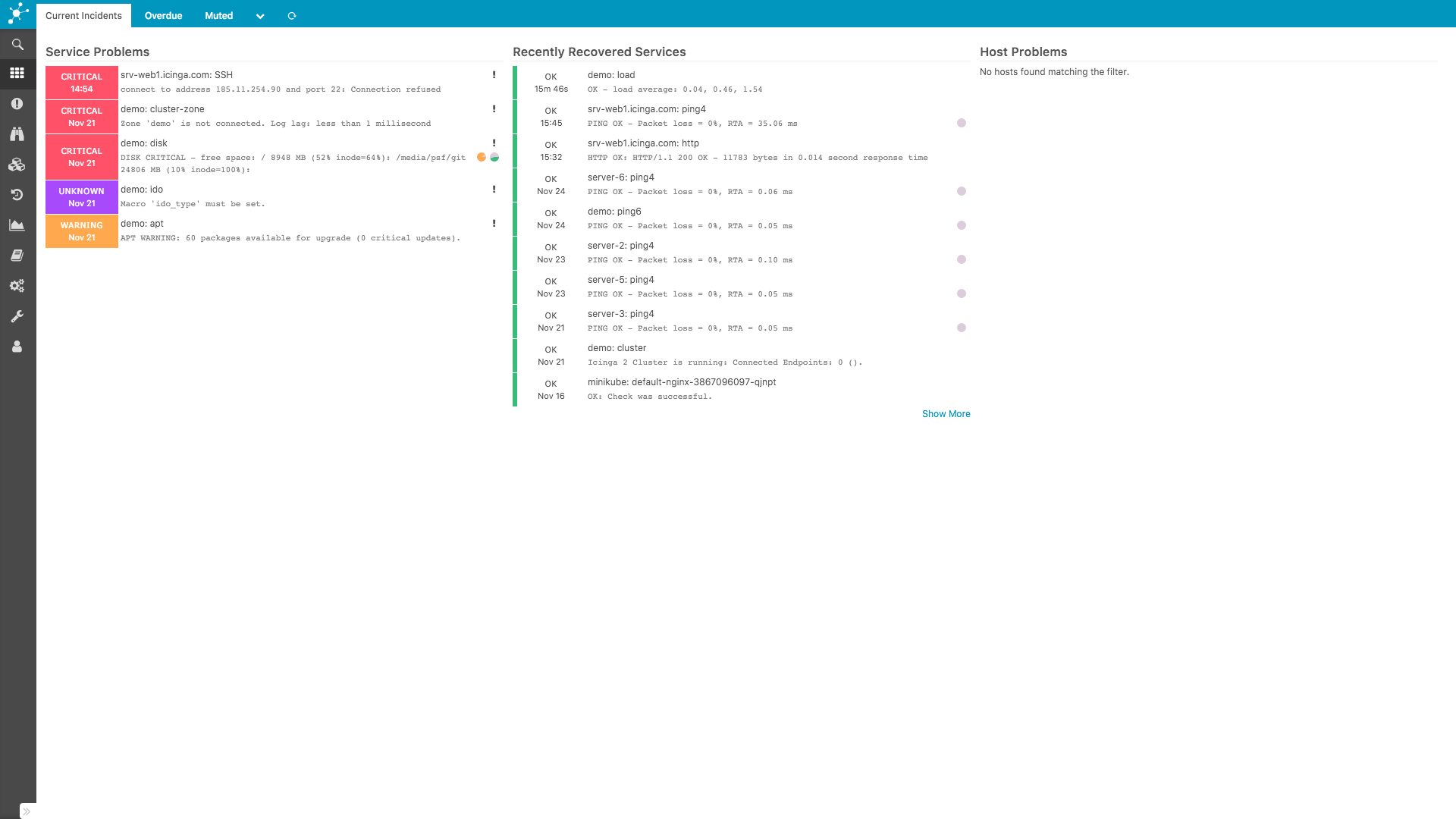If you filter by host custom variables and the query does not have the services table joined,
our query implementation calls the joinHosts method. Then, the column for the JOIN ON condition is
automatically set to h.host_object_id.
But it may be required by the query to call joinServices and use s.host_object_id instead of
h.host_object_id because the query does not use any host related table at all.
This is now possible when h.host_object_id is mapped to s.host_object_id:
class ServicesRelatedQuery
{
protected $columnMap = array(
'hosts' => array(
'h.host_object_id' => 's.host_object_id'
)
);
protected function joinHosts()
{
$this->requireVirtualTable('services');
}
}
Icinga Web 2
About
Icinga Web 2 is the next generation open source monitoring web interface, framework and command-line interface developed by the Icinga Project, supporting Icinga 2, Icinga Core and any other monitoring backend compatible with the IDO database.
License
Icinga Web 2 and the Icinga Web 2 documentation are licensed under the terms of the GNU General Public License Version 2, you will find a copy of this license in the COPYING file included in the source package.
Installation
For installing Icinga Web 2 please read doc/02-Installation.md.
Documentation
The documentation is located in the doc/ directory.
Support
Check the project website at https://www.icinga.com for status updates. Join the community channels for questions or ask an Icinga partner for professional support.
Contributing
There are many ways to contribute to Icinga -- whether it be sending patches, testing, reporting bugs, or reviewing and updating the documentation. Every contribution is appreciated!
Please continue reading in the contributing chapter.




